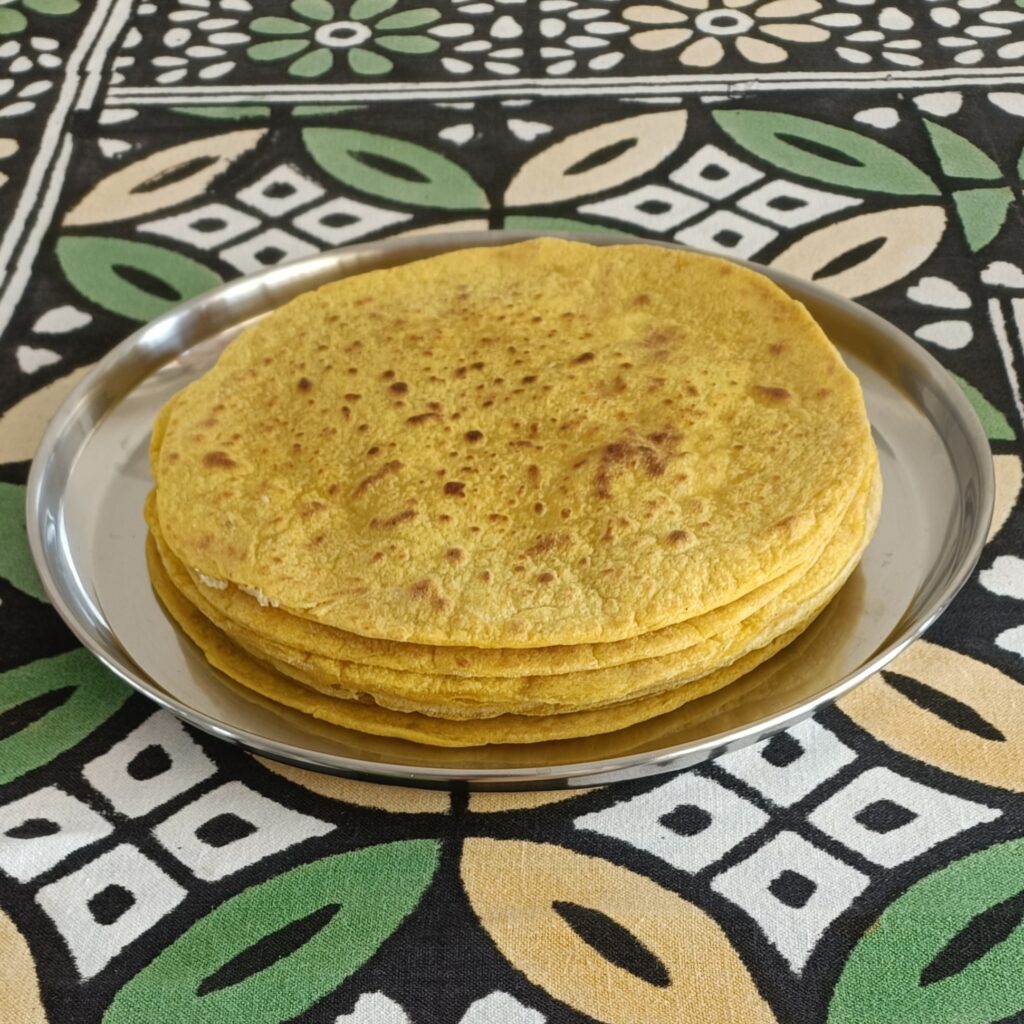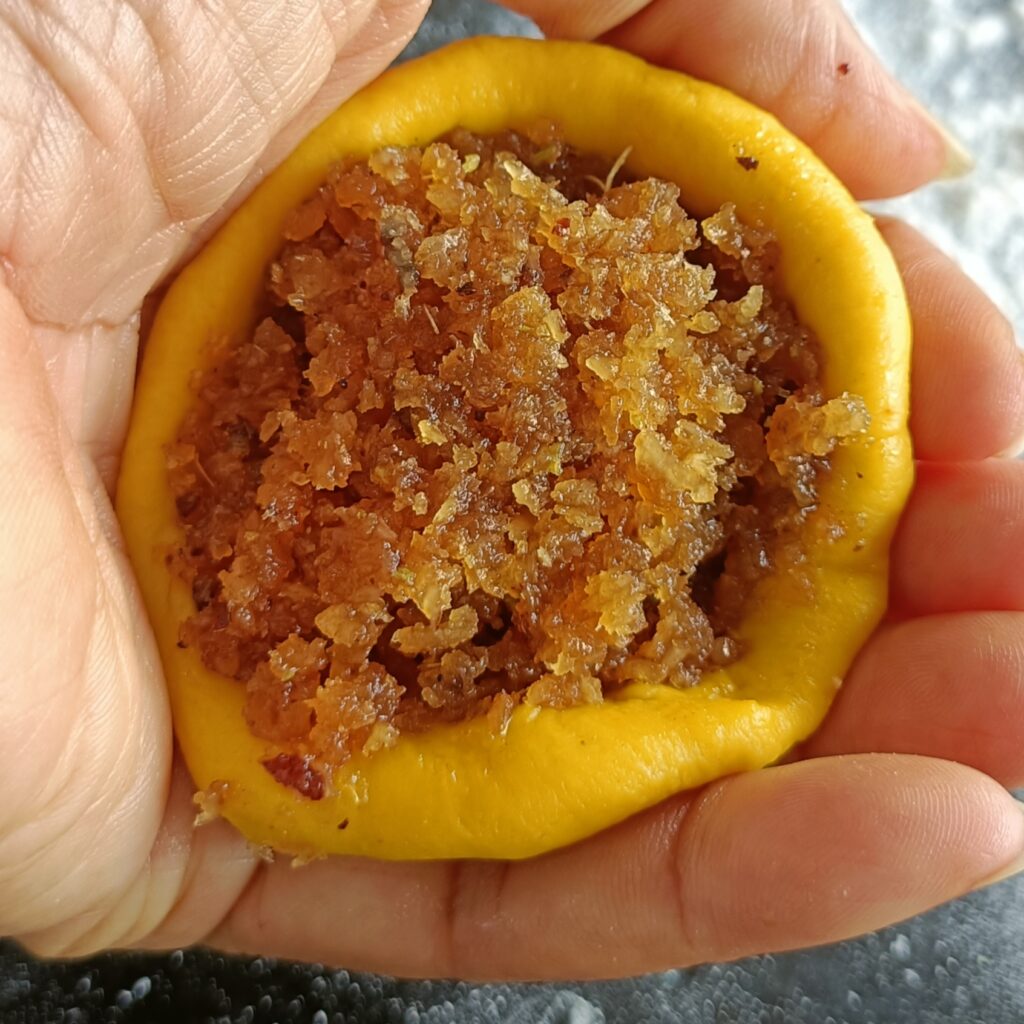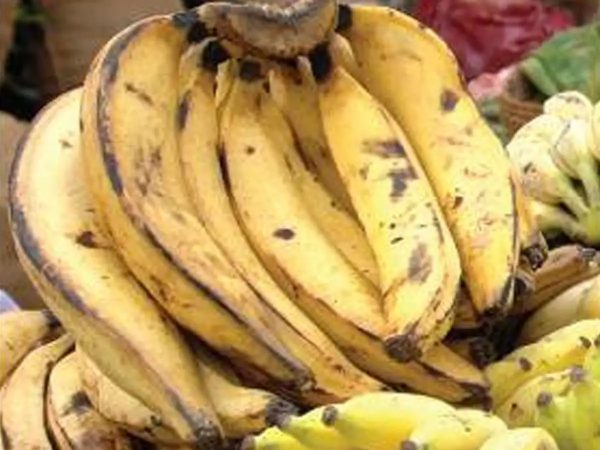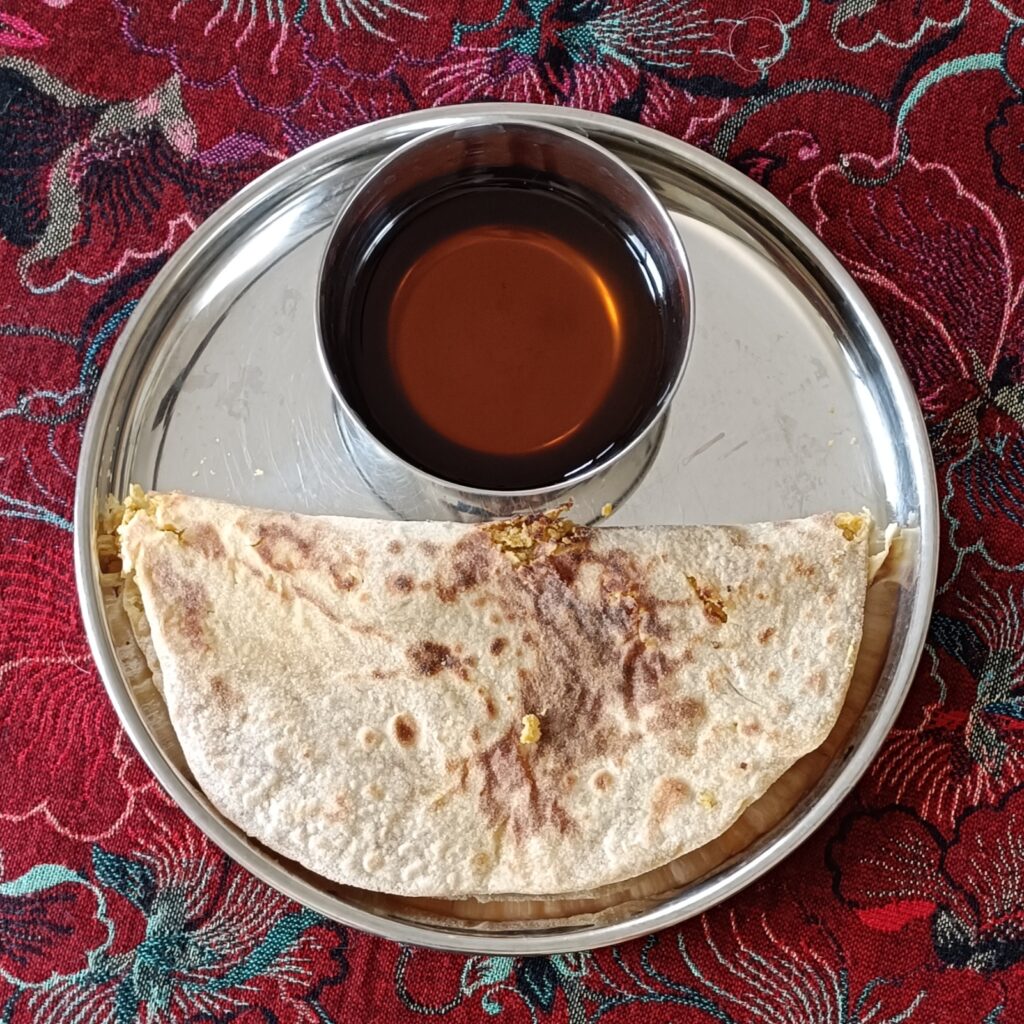
Sanjiryo or Sanjori (Sweet Semolina Stuffed Flat Bread)
Sanjori is the Marathi word for the Konkani Sanjiryo. It’s a delicious flat bread that’s stuffed with a sweet semolina stuffing. It’s similar to puran poli and naral poli, but isn’t made as often. Once you make it, you will be tempted to make it more often. Wheat is generally considered an acid-forming food because it produces more acid waste during its metabolism. Wheat provides carbohydrates (mainly starch), fiber, protein (including gluten), B vitamins, vitamin E, and minerals like iron, magnesium, phosphorus, and potassium. Whole grains are richer in nutrients than refined grains, containing significant amounts of dietary fiber and antioxidants. While beneficial for most, wheat can trigger gluten-related disorders in susceptible individuals. Excessive sugar consumption can lead to an acidic environment within the body. An acidic environment triggered by excess sugar can lead to the release of cortisol, a stress hormone, which can contribute to inflammation.



